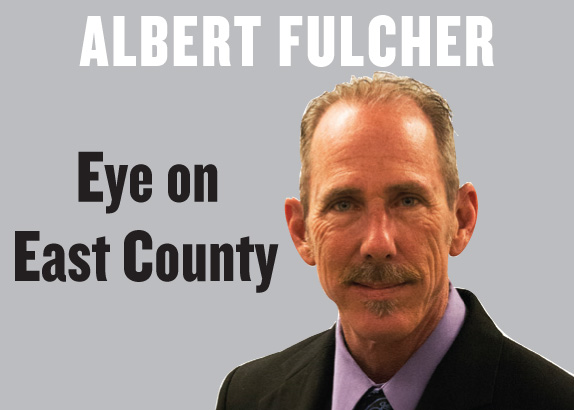We all gather our news in diverse ways. Many favor one newscast with reporting what favors their political viewpoints, while others have almost a ritualistic changing of the remote to all the many news sources available. As someone who has to read news from all over to keep up with what is going on from here locally to international events, it really takes a great headline to catch my attention. A recent headline in Newsweek caught my attention quickly.
We all gather our news in diverse ways. Many favor one newscast with reporting what favors their political viewpoints, while others have almost a ritualistic changing of the remote to all the many news sources available. As someone who has to read news from all over to keep up with what is going on from here locally to international events, it really takes a great headline to catch my attention. A recent headline in Newsweek caught my attention quickly.
Originally, an op-ed in the Los Angeles Times, Jay Famiglietti, senior water scientist at NASA Jet Propulsion Laboratory in California clearly said that the state has only one year of water left. In this article, he states that 12 million acre-feet of stored water has been lost since 2011 in the Sacramento and San Joaquin river basins. Other facts he presented included that the Cascades and Sierra Nevada mountains recorded the lowest snowpack recorded; groundwater is rapidly disappearing and cited NASA research that concluded California has a “remarkably drier future” ahead. He calls for immediate water rationing implemented statewide and quick major changes in policy and infrastructure that he said could take decades to identify and act upon. NASA’s report also indicates as soon as 2050 we will see “megadroughts” that can last between “10 years and several decades.”
And that comes after the lowest “rainy season” January since 1895. These are grim statistics.
Gov. Jerry Brown and legislative leaders are working on legislation to infuse $1 billion more into water spending. If and when this could pass is unsure, monies spent would be split for spending for everything from flood control, enforcement, infrastructure, looking for new local water supplies, emergency drinking water program, protecting fish and wildlife subjected to long-term drought and recycling and desalination programs. Though I believe that the majority of these items need addressing and the money to support them, I honestly do not have the faith in our state legislative body to agree on any spending legislative bill until it is too late. And if you look at what NASA is saying, it already is.
What boggles my mind the most though is why there has been no real action taken locally. The ripple effect of our loss of water supply spreads as fast as the wildfires we face each year. Farmers unable to plant for the season, dying wildlife, increasing food cost and the yearlong need for battle ready firefighters are a few of the ripples we are facing now. Those that have lived in this area already know (but do not always practice) these common sense actions that should now be standard practice for all of us.
“Brown is the new green” is the latest motto going around for urban water use, as it should be. But more action needs to be taken. It is up to our state and local water authorities to implement and enforce regulations to help us survive this and future severe droughts.
San Diego County might not be the largest county in California, but it is the second most populous county in the state and ranks fifth in the U.S., and still growing at a rapid pace in urban development.
It’s only going to get worse folks.
There is a desperate need for our local city and county officials to put pressure on the San Diego Water Authority to impose and enforce more water restrictions. I fully support restrictions that are more stringent. There is nothing more that we can do right now other than conserve what little we have. San Diego can lead the way by example. Others will follow, and just possibly on the state level our legislators will realize that we are more than just concerned about our water supply, but willing to do something about it.













